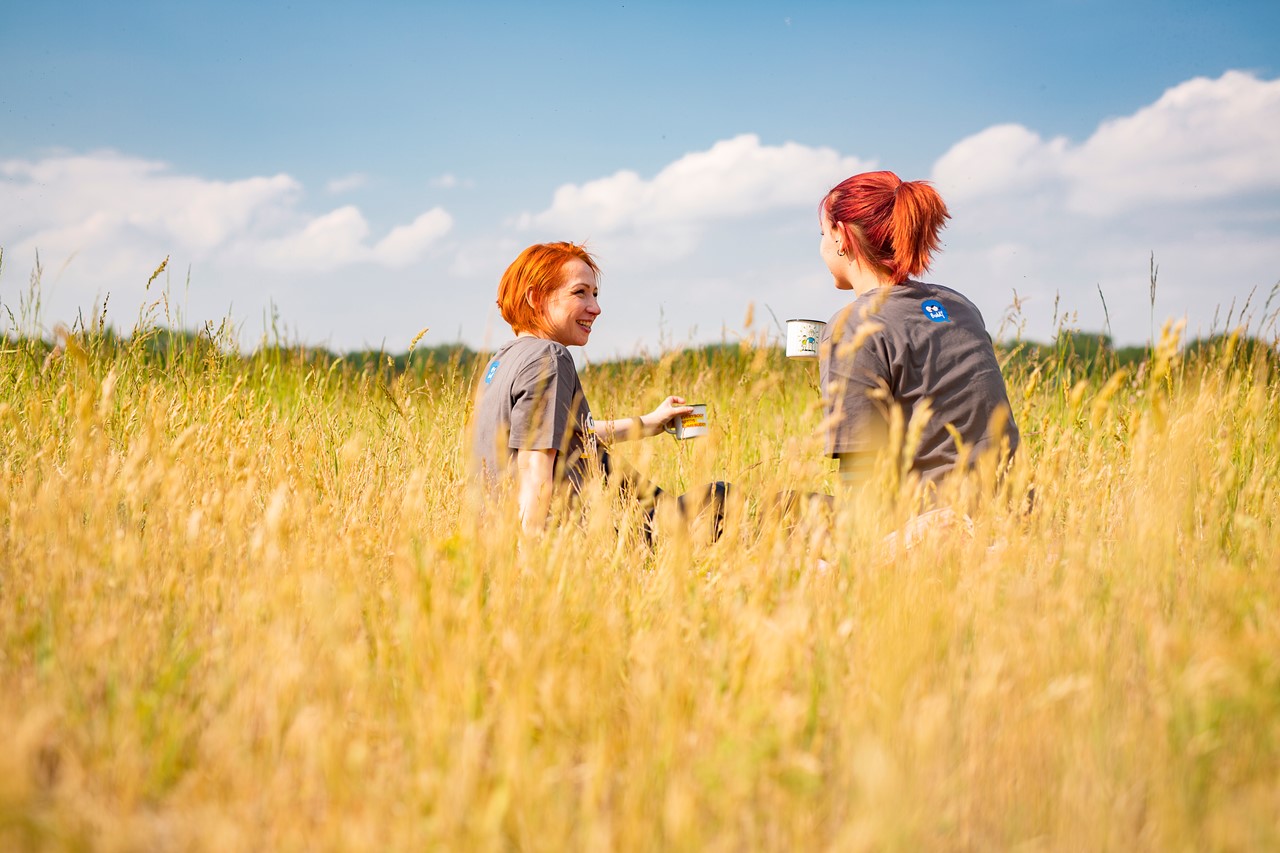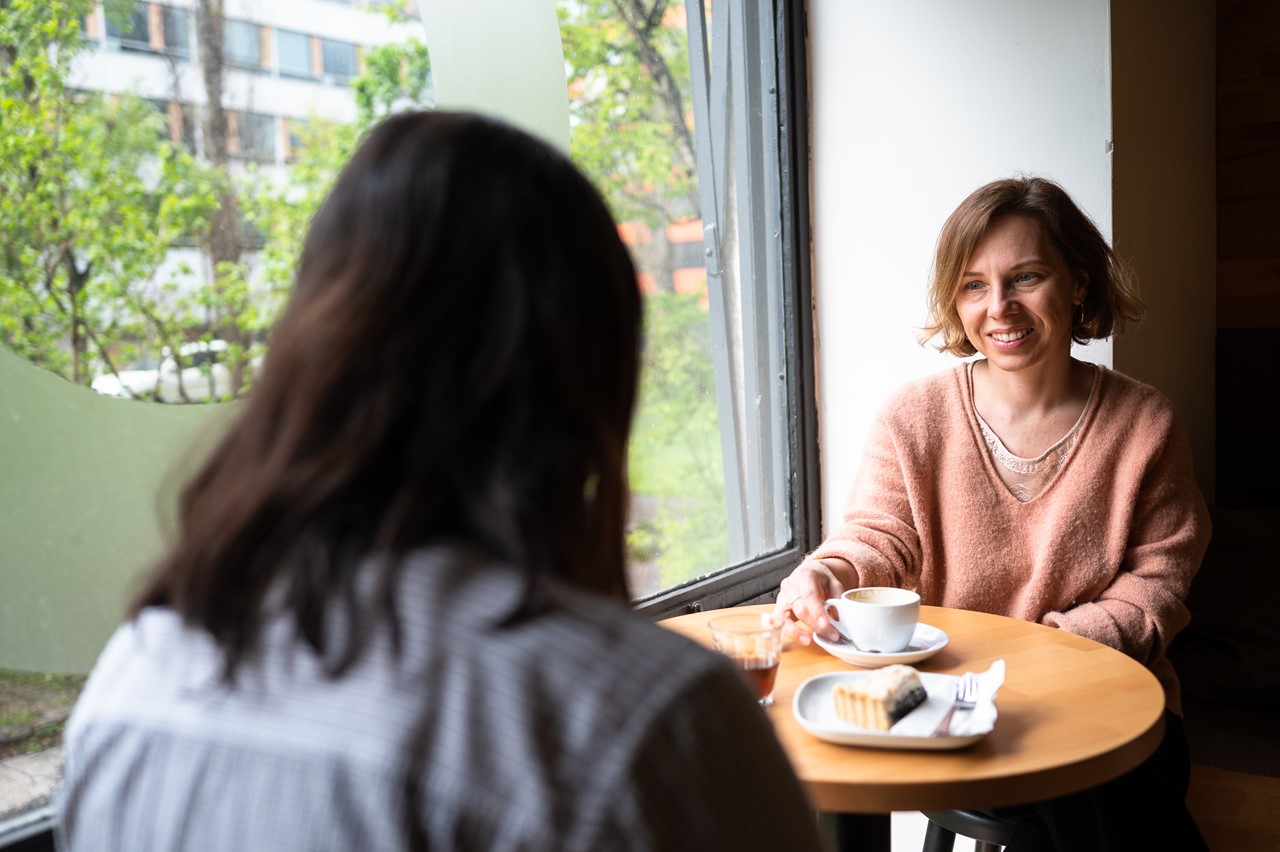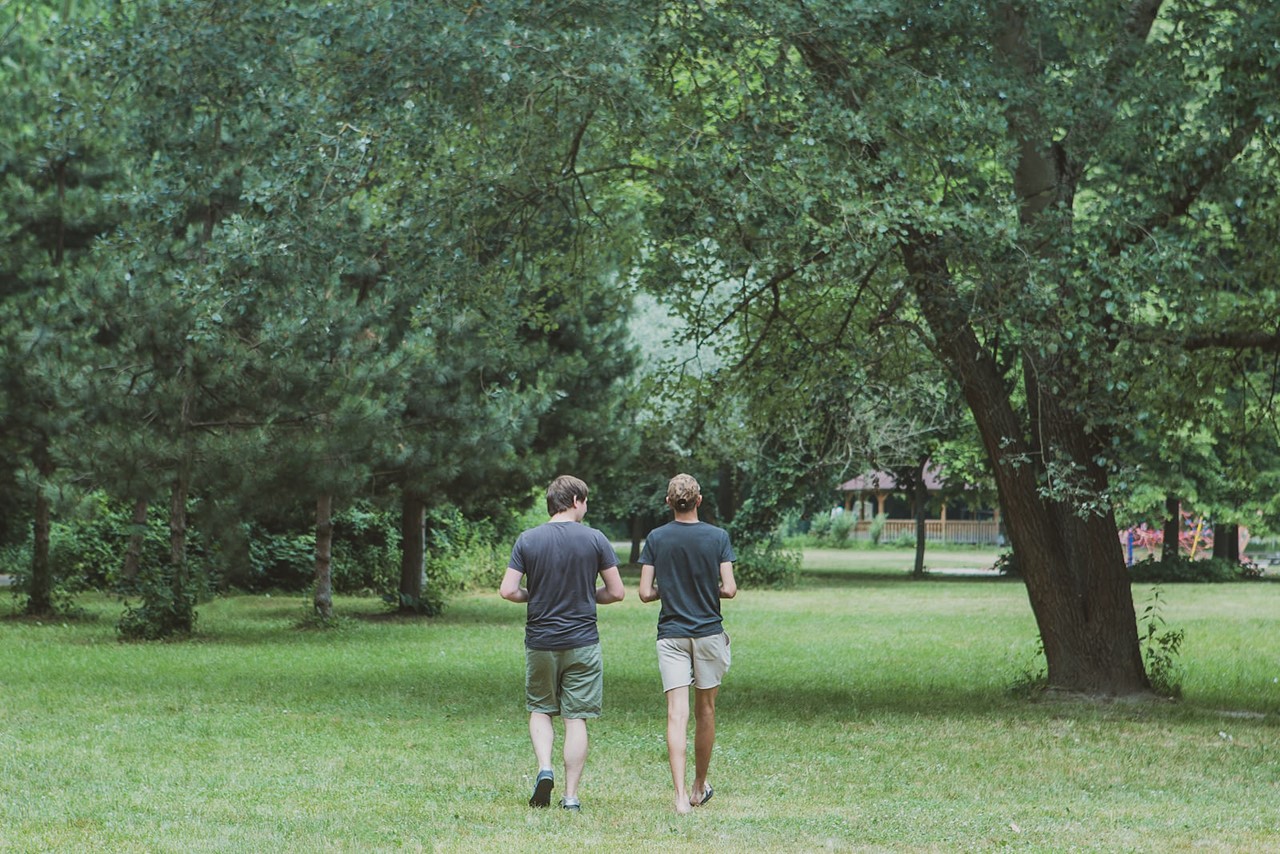< Back To Newsroom
For a vulnerable child, a BUDDY can make a difference
January 12 2022
Most of us have a family. Some of us have stronger family ties, but many of us have a challenging family life. In either case, there was probably somebody who helped us through our transition to adulthood. But there are some children who have either grievously dysfunctional families or no families at all. So who is going to help those young people find their way as newly emerging adults?
The PROVIDA organisation and its main programme, BUDDY, were established in Slovakia to match such young people with caring adult volunteers who want to fulfil that supporting role. There presently are 100 such BUDDY pairs, and it is the aspiration of the volunteers, supporters, professionals, and founders of the BUDDY programme for that number to be much larger in future.
In Slovakia today, there are about 3,500 children growing up not in their own families but in institutional residential group homes (formerly known as children’s homes, today as centres for children and families). Many of them have survived traumatic experiences in their own, biological families or have never had proper families at all. There is a danger that such vulnerable individuals will end up struggling through life on the margins of society (typically experiencing homelessness, unemployment, or crime).
Even the best-intentioned staff in the centres cannot give a child the kind of close, one-on-one personal relationship with an adult that he or she strongly needs. The child needs a relationship with someone who is willing and able to spend serious time with him or her, to listen, to take a sincere interest. A BUDDY volunteer can help to meet that need.

Photo © Tvoj Buddy
Ladislav Kossár founded the programme in 2006 together with his sister Lucia Kossárová. Ladislav, a former entrepreneur, and Lucia, a social scientist, tried over 8 years several approaches, such as summer camps, skills training, and weekend programmes with children in various age groups. Finally, in 2014, they realized what these kids really need and what they could provide them. That was a seemingly simple yet very valuable addition to their lives: a trusted one-to-one relationship with a caring adult from the outside of the centre who can support the child on his or her journey to an independent life with dignity. The centre staff members welcomed this approach, and practical experience has confirmed the premise to be entirely correct.
The BUDDY programme’s professional staff and volunteers find, screen, train, and support BUDDY volunteers. Typically, a BUDDY volunteer and BUDDY youth get together about once a week.
VGP Foundation was one of several corporate supporters of the BUDDY programme in 2021. Its contribution helped to establish several new BUDDY relationships, as well as to finance research evaluating the programme’s long-term impacts on the children.
We spoke with Lucia Kossárová, co-founder of the programme, just before Christmas to see how things had been going during 2021. She described how the organisation and effort have adapted to the pandemic situation and what recent experience has taught them.
“The past couple years have been challenging for everybody and in many ways,” Lucia related. “Some were ill or lost loved ones, others were hit economically or even experienced all the above...We saw that in BUDDY, some of our young adults were hit very hard when they lost their jobs or homes. But we also saw how important the BUDDY volunteers remained in the children’s lives, how they supported them, even though they could barely visit each other. We have one volunteer who went past the gates of the centre and waved to her BUDDY girl regularly. Maintaining contact was challenging, but I think it made us all more creative and resilient.”
“COVID-19 meant that the BUDDY programme had to go online almost overnight,” she explained, “which was something that under normal circumstances might have taken years. Interviews for the long-term research project (in co-operation with Fordham University and the Slovak Academy of Sciences) also had to be done online.” Lucia said she remains very optimistic about that research. “The results of this rigorous academic evaluation,” she stated, “should help us improve our work and give further evidence as to the importance of a safe, trusting adult in the life of a traumatized child.”
The programme staff and volunteers are learning all the time, and 2021 was no different. Reflecting on BUDDY’s history, Lucia pointed out that they knew already in 2006 the problem they needed to address, but finding the best way to provide a solution was not so simple.
“It took us eight years to figure out the intervention that would complement the work of other organisations in Slovakia. We realised that educational activities and skills development are important, but what these children with multiple traumas need the most to succeed is someone who can give them individual care, support and guidance over the long term – someone, who can teach them to trust themselves and adults again. So we stopped working directly with the children, and volunteers became the agents of change. We also narrowed our focus to children aged 12 and older, who cannot be placed for adoption or with a foster family. Our main focus became the recruitment, selection, matching and support of volunteers, each of whom cares about and supports one child.”
Lucia and her brother – and probably all those involved with BUDDY – would love to see the number of BUDDY pairs grow by 10 times or even more. That means professionalising the organisation to ensure a steady inflow of qualified volunteers, high quality in all aspects, and financial stability is important. Lucia noted that VGP Foundation’s assistance was well-timed in that respect.
“We lost some regular supporters because their businesses suffered due to COVID, but we also gained new supporters. VGP joined us on the journey in a very important moment,” Lucia said. “VGP’s support gave us greater financial stability, helping us to find new volunteers for new children, ensure the continuity of our research project, and focus our attention on strengthening our brand and further increasing our regular revenues. In difficult times we became a stronger organisation.”

Photo © Tvoj Buddy
Finding new volunteers across Slovakia is one of the biggest challenges. Being a BUDDY is not for everybody, of course, and only about 10–15% of applicants ultimately enrol in the programme.
The organisation asks volunteers to make a long-term and regular commitment. They do not want children to develop a bond with somebody only to experience that yet another adult has abandoned them.
“We are demanding,” Lucia noted, “but we have to be, as we have the responsibility of finding safe and caring adults for the children. The complexity of our selection process is similar to the adoption process. Anyone who is 25 or older can apply. It is essential that he or she is stable in life and does not expect major life changes. The applicant has to be mature and responsible, with the right values. At the same time, that person should be proactive, empathetic, and flexible.”
As with any serious undertaking, it is important for the BUDDY programme to measure success with an aim towards continuous improvement. The primary focus is of course upon the wellbeing of children, Lucia emphasised. They also monitor satisfaction and impact on volunteers, on the children’s homes with which they co-operate, as well as on the broader BUDDY community of supporters and others. “It is reassuring,” she related, “that the 17 centres we work with trust our work and see the benefit to the children and young people. One hundred per cent of the centres that provided feedback would recommend us to other centres.”
Since 2018, the organisation has been using two standardised tools developed in the USA to measure the quality of the relationship from the perspectives of the BUDDY child and BUDDY volunteer. “The results of an independent evaluation using these tools confirmed that BUDDY creates and maintains strong relationships which then enable the child’s development,” Lucia explained. “We have been using these questionnaires annually and the results help our co-ordinators assess where the pairs need most support.”
Impact monitoring continues once the young adults depart the children’s homes. Lucia pointed out that during 2020 the BUDDY programme included 31 young adults who already had left the centres. The organisation was in contact with 29 of these. All of them had a place to live and 90% were either working, in school, or on maternity leave.
“Overall, BUDDY helps to improve mental health outcomes of extremely vulnerable children,” Lucia related. “Our data show that children are learning to trust adults again, feel less lonely and more confident. At the same time, the programme connects worlds that would otherwise not meet and reduces inequalities by improving the opportunities of the vulnerable. When stable, integrated adult volunteers meet with socially disadvantaged children, this strengthens the social network and skills of children necessary to finding housing and jobs.”

Photo © Tvoj Buddy
Looking back on the pandemic-challenged year 2021, Lucia was pleased to report that the organisation achieved a milestone as 100 active BUDDY pairs are presently matched up. Altogether 160 children and 160 volunteers have been through the programme and their lives have been positively impacted.
“In 2021 we expanded to the east of Slovakia and enrolled 5 new centres for children and families – 3 in the Košice region and 2 in the Prešov region. Also, with the help of the VGP Foundation, 22 new children met their volunteers for the first time – 16 in western Slovakia and 6 in eastern Slovakia... We also started collaborating with a marketing and media agency to implement a more targeted campaign strategy and ensure a steady inflow of appropriate volunteer candidates. And while we lost some financial supporters due to the pandemic, 29 new regular monthly supporters have joined us on this incredible journey.”
Looking to the future, the organisation hopes to double the number of BUDDY pairs (to 200) within the next 3–5 years while expanding the programme to cover all regions of Slovakia and possibly even beyond. Important, Lucia said, will be to maintain financial stability, continue strengthening the internal team, and recruit excellent BUDDY volunteers.
“And of course, last but not least,” she concluded, “we have to make sure always to maintain the high quality of the programme and deliver lasting positive change to BUDDY children.”
This article was prepared by Gale A. Kirking, Editor-in-Chief at English Editorial Services, s.r.o.